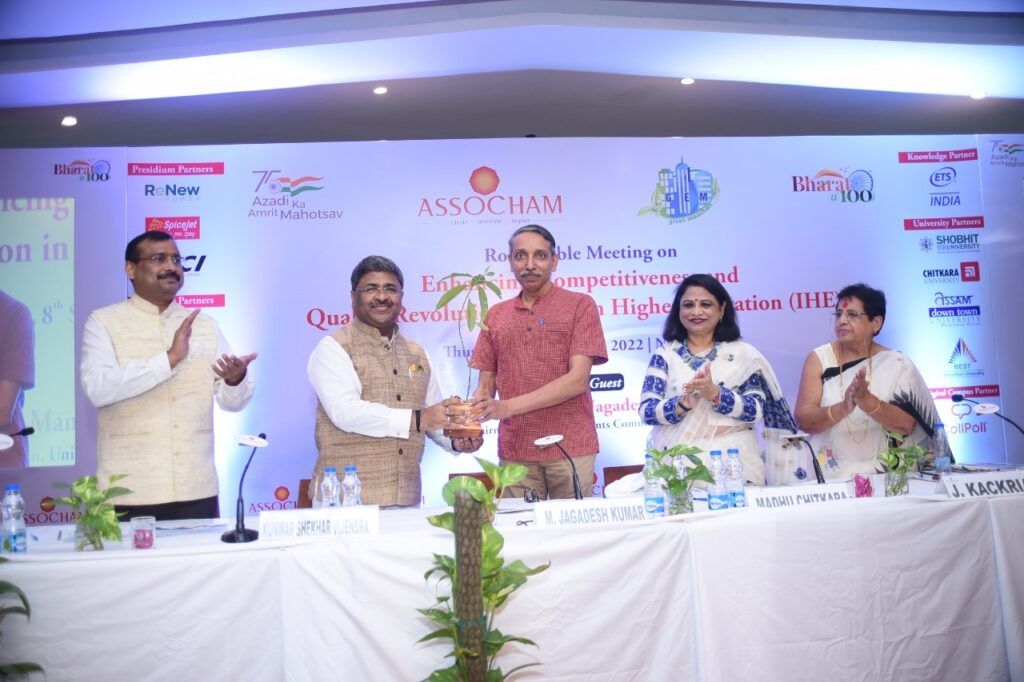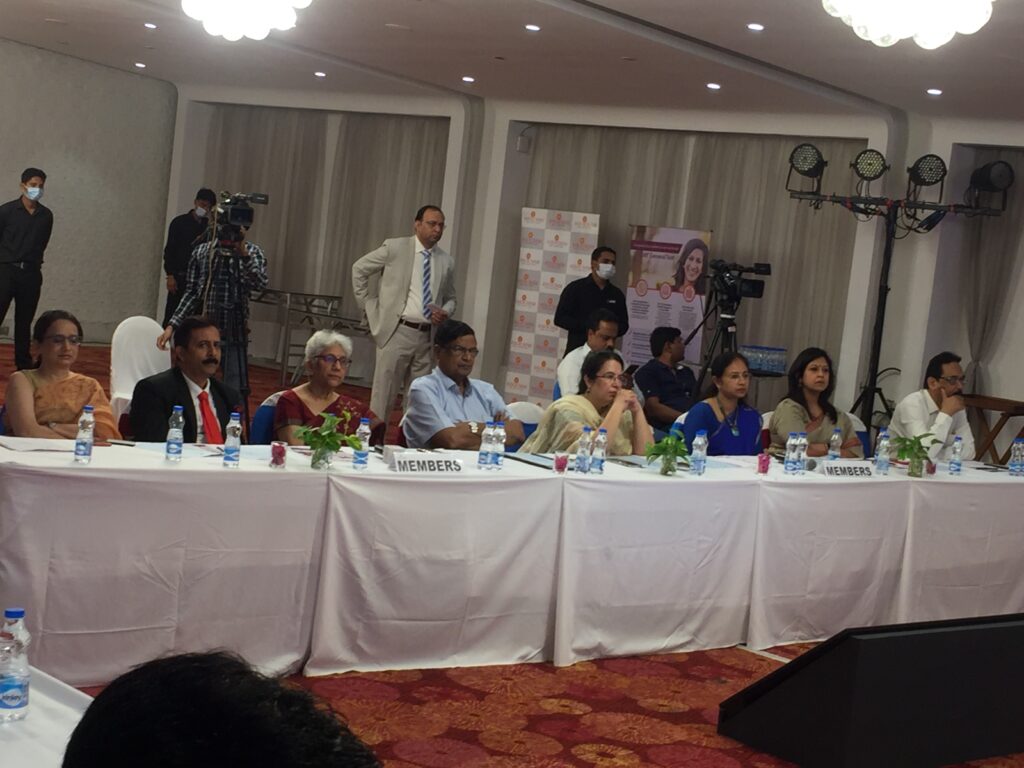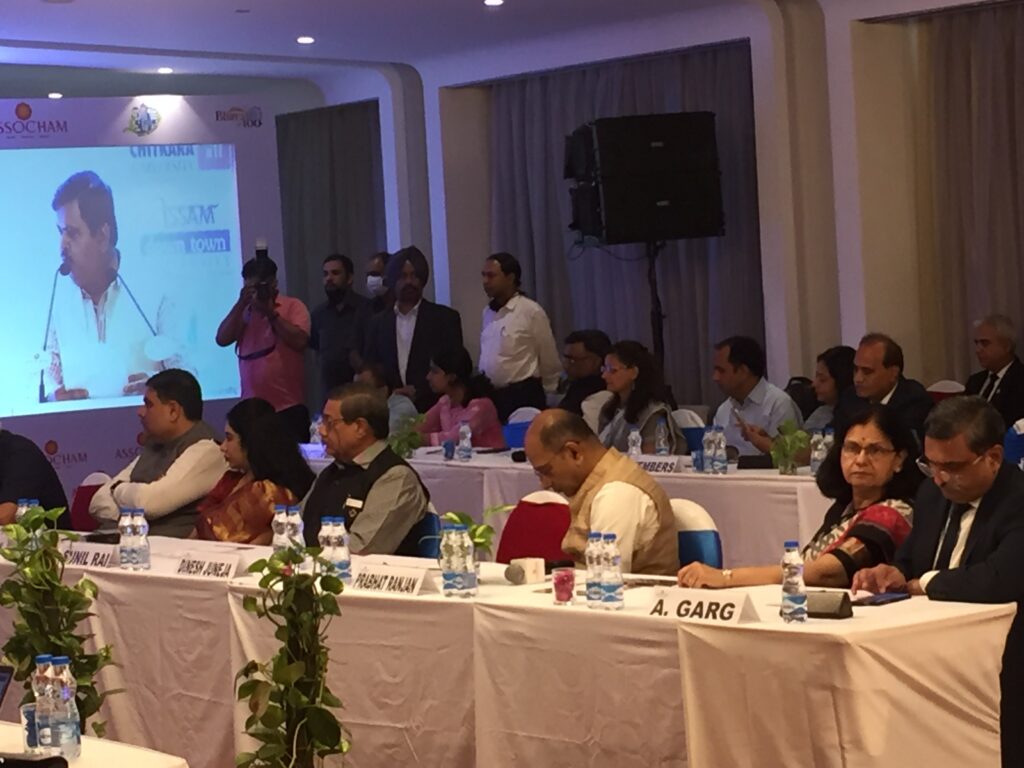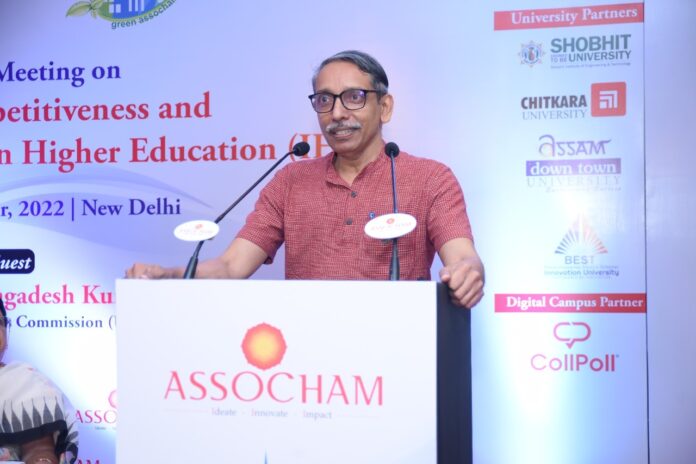New Delhi, September 8, 2022 : Prof. Mamidala Jagadesh Kumar, Chairman, University Grants Commission (UGC)-GoI, chief guest at the roundtable – ‘Enhancing Competitiveness and Quality Revolution in Indian Higher Education (IHE)’, informed that UGC has tied up with Ministry of Electronics and Information Technology (MeitY) to ensure that students from remotest areas can have access to online education facilities. “We are working on a multi-dimensional way to make sure that education reaches to the last student in the most remote area. So, we have signed up with MeitY as they have a large number of common service centres (CSCs). Any student can walk into those centres, pay a nominal monthly fee, and access digital universities,” he said. The event was organised by the apex industry body, Associated Chambers of Commerce and Industry of India.

Prof Kumar gave insights into the various initiatives undertaken by the Government of India to expand and enhance higher education in the country. “The introduction of Common Universities Entrance Test Undergraduate (CUET-UG) 2022 has been well-received by the students and the stakeholders. A huge number of students, around 14.9 lakhs registered for this examination, which is only next to NEET (National Eligibility-cum-Entrance Test),” he said. Speaking on the possible merger between the national-level engineering and medical entrances NEET and JEE, he added, “That’s an idea that we are floating so that there is wider discussion among the stakeholders. There is no formal decision that we have taken on this.”

The UGC chief also addressed numerous queries from the Vice-Chancellors present at the roundtable. He revealed that nearly 550 universities have registered at the Academic Bank of Credits (ABC) for higher credits. “Thousands of students taking online courses are benefiting in terms of transferring the credits to the host university where they are studying online,” he said, adding, “Currently, students can take up to 40% of the credit requirements in a programme, but once we announce online regulations and establish the digital university, there is going to be an exponential growth of online education.”

With respect to bringing international students into Indian educational institutions, he said, “Recently we have raised the upper cap to 25%, earlier it was 15%. And in the same guidelines, we also said that as far as the admission of these students are concerned, each individual university can have their own admission policy and in terms of fixing their own tuition fee. We hope that with this flexibility given to our education institutions will be able to attract a lot of international students.”
In terms of also fostering student activity between institutions in the country as well as abroad, Prof Kumar informed, “We are working out regulations that will enable Indian institutions to establish their campuses abroad and foreign universities to come and establish their campuses here. Soon we will put out the broad regulations for feedback from you. Once that happens, there will be lot of movement of students, from abroad to India and from India to these foreign campuses within our own country. The Indian student who cannot afford international fees can benefit from this arrangement. So, it’s a win-win situation for all.”
He informed that the National Curriculum Framework (NCF) is going to be enhanced soon. “It is going to be a comprehensive document. It will become the foundation of all kinds of education with the integration of three pillars – school education, skill education and national higher educational,” he added.
On a question on Deemed-to- be Universities, Prof Kumar said, “There are around 126 deemed universities in India and we are already working on the deemed-to-be universities’ regulations. Removing the tag ‘deemed-to-be’ requires an amendment at UGC part, but it will surely happen,” he concluded.
Other who also spoke during the meeting were Dr. Madhu Chitkara Co-Chairperson, ASSOCHAM NCE & Pro-Chancellor, Chitkara University; Kunwar Shekhar Vijendra Chairman, ASSOCHAM National Council on Education & Co-Founder & Chancellor, Shobhit University; Dr. Ashwani Lochan Co-Chairman, ASSOCHAM NCE & Chairman, Arunachal University of Studies.

